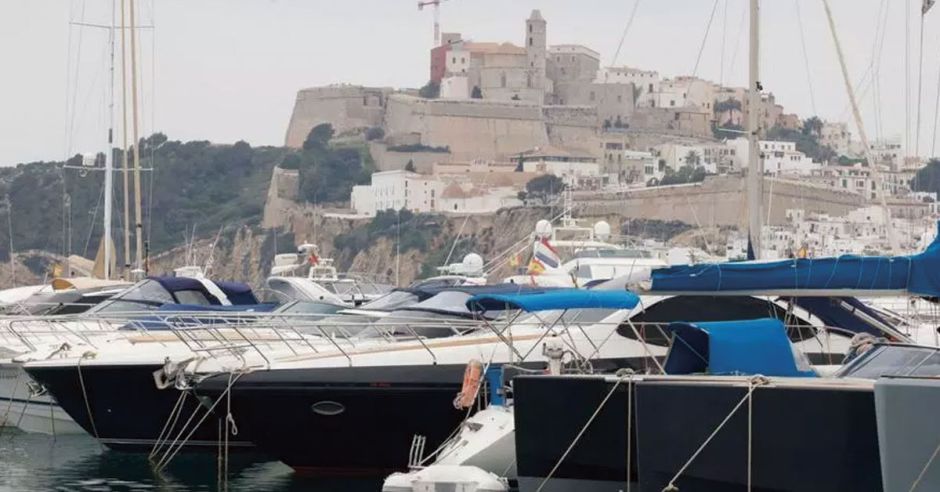- News
- The decree to prevent piracy in the nautical charter sector divides the sector in Ibiza and Formentera
The decree to prevent piracy in the nautical charter sector divides the sector in Ibiza and Formentera

A necessary instrument to stop intrusion or a project designed to punish small businesses that will not solve the problem? It depends on who we ask. The draft amendment to Decree 21/2017 of the Balearic Government, which regulates the rental of recreational boats on the islands, has divided business owners involved in nautical charters. A division that has even reached the Nautical Association of Ibiza and Formentera, which is part of the Pimeef (Spanish Association of Professionals and Professionals).
While a sector of the Association, including its president, has clearly expressed its support for this initiative, other business leaders also grouped in the Pimeef have positioned themselves against it and have presented objections to the draft.
The Government's proposal requires that every charter boat must have an authorized point in the Balearic Islands for mooring, anchoring, boarding, and disembarking. The idea is to prevent bad practices such as anchoring and operations in coves, where this activity is carried out out of control.
"Business in coves must be banned."
"We see this positively and have been requesting it for years," says Ramón van der Hooft, president of the Nautical Association of Ibiza and Formentera, who explains that "in the sector, we suffer a lot of intrusion, and it's not right that companies that operate from here, have moorings here, and pay what a boat costs in Ibiza, have to suffer unfair competition."
"Boats from the mainland come here and embark and disembark within the coves. Business in the coves must be banned. Therefore, there must be a fixed mooring or a base port for embarkation and disembarkation maneuvers and waste and garbage management." "This can't be allowed to happen in anchorages," says Van der Hooft.
However, the requirement to have a mooring excludes many small businesses from the market, as moorings in Ibiza are extremely scarce in the summer and the price is prohibitive. Van der Hofft himself admits: "The ports have the moorings they have, and everyone wants to operate here. But if we open the entire coastline to unregulated activity, we'll end up with overcrowding. Just because there's a lack of moorings doesn't mean we should accept that everyone can operate from any point along the coast, as is the case now."
No Moorings
Álvaro Aguirre, a long-distance skipper and owner of One Day Charter, also a member of the Pimeef, disagrees. His is a small company with a sailing boat that serves as a nautical school in the winter and is used for chartering in the summer. "I pay €1,000 a month for my winter mooring at a marina, but on May 1st I have to leave because these moorings are occupied in the summer by boats that come for the season. When the season starts, there are no moorings, and I have no choice but to keep my boat anchored."
For Aguirre, this decree is the last straw because "not only are we left without moorings, but they also take away our ability to charter. This is a law that benefits very few companies." He also denies that the objective of this initiative is to combat piracy: "I have all the necessary certificates and paperwork, I pay for the dry dock in Botafoc, I pay for repairs in Ibiza, we're registered in Ibiza, we pay taxes, we're registered with the ISMN (Spanish Maritime National Register of Natural Resources). How are we going to do illegal charters? And now, the four people on duty who have a mooring tell you that you can't do charters either. This is not a solution."
The business owners who oppose this measure have grouped together in the Charter Balears Association, which currently represents more than one hundred professionals in the sector, including self-employed workers and companies. During the public hearing and information phase of the project, this association has presented various objections. Regarding the obligation to have a fixed mooring, they point out that "the shortage of authorized moorings in the port would prevent companies from complying with this requirement" and propose "facilitating boarding by installing authorized docks."
"Let there be a space in Talamanca. "Let them put two or three sailors there with a radio and charge you for embarking or disembarking. That way you have it regulated, the administration gets some money, and you prevent illegal chartering," says Fernando Sobreira, of the company Seaside Holidays, who also opposes the government's proposal. "In Greece, for example, most moorings are public. Here, just loading water is almost an impossible task," explains this businessman, who also points out that the collapse experienced in Ibiza's marinas means that emptying sewage "is an odyssey."
Aguirre shares the same opinion: "The solution would be to install a dock with charter moorings, rented for a period of time. You can set them up in Talamanca or Porroig. Pay by the hour. Do you take on water? You pay for that. Do you drop off or pick up clients? You pay for that. It's a viable solution. It's what's done everywhere."
"If they want to prevent illegal chartering, the Civil Guard is there for that. But the only thing they'll achieve with this is to lump us all together and take away the bread from many people, including members of the Pimeef. They should listen to us and modify this project," Arroyo concludes.
Despite these criticisms, the spokesperson for the Ibiza and Formentera Nautical Association believes that "from the outset, the concept of the decree is the right one, in our view." However, according to Van der Hooft, any legislation will be ineffective without an adequate oversight system: "Let's hope that the administrations have the necessary powers and resources."
SOURCE: https://www.diariodeibiza.es/ibiza/2025/03/16/decreto-evitar-pirateria-charter-nautico-115334229.html


